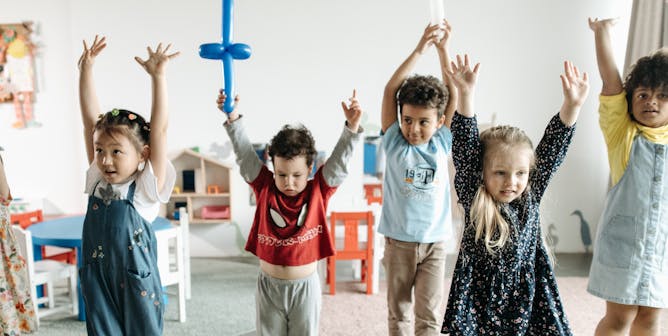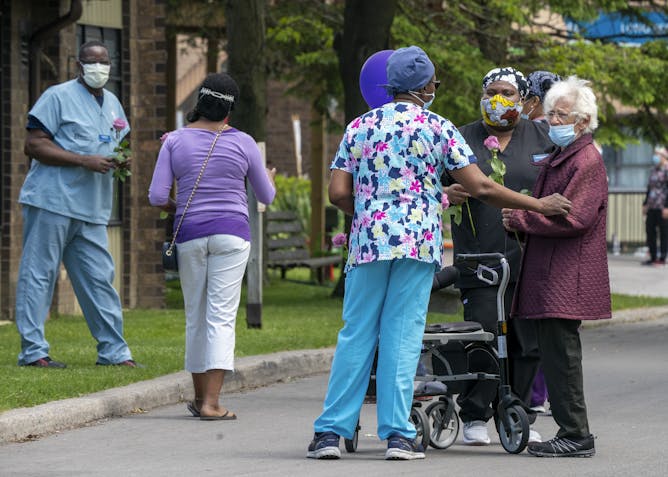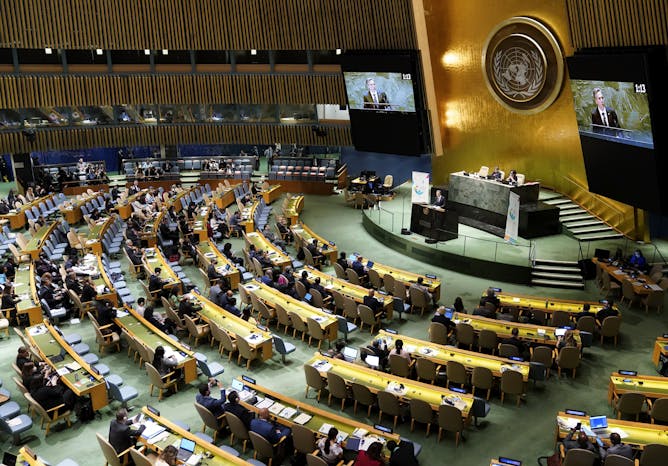|
Young children have been affected by pandemic-related changes in home life and early schooling experiences. For some, this has come with anxiety. How do parents and teachers know what’s a normal part of navigating change, and what requires attention?
Today in The Conversation Canada, Caroline Reid-Westoby and Magdalena Janus of McMaster University write about their population-wide study of kindergarten-age children attending public schools across Canada between 2004 and 2015.
They write: “Our results demonstrate that a child showing signs of anxiety in kindergarten should not be ignored. Children with elevated symptoms of anxiety are three to six times more likely to be vulnerable in other areas of their development than those with very few of these symptoms.”
The study “also provides an estimate of the prevalence of anxiety symptoms among kindergarten-aged children in Canada. These could, in future, serve as a baseline for comparing groups of children after the COVID-19 pandemic.”
Also today:
Regards,
|

|
Susannah Schmidt
Education + Arts Editor
|
|

Signs of anxiety in kindergarten should not be ignored.
(Pavel Danilyuk/Pexels)
Caroline Reid-Westoby, McMaster University; Magdalena Janus, McMaster University
A study of students across Canada between 2004 and 2015 provides an estimate of anxiety symptoms in kindergarteners, and can serve as a baseline for comparing children’s anxiety after COVID-19.
|

A resident chats with workers at Orchard Villa Long-Term Care in Pickering, Ont., in June 2020.
THE CANADIAN PRESS/Frank Gunn
Andrew Costa, McMaster University
When political candidates talk about their long-term care proposals, let’s remember there isn’t much point unless we recruit and adequately compensate enough workers to care for our loved ones.
|

U.S. Secretary of State Antony Blinken speaks during the International Migration Review Forum on May 19, 2022, at United Nations headquarters in New York.
(AP Photo/John Minchillo)
Amyn Sajoo, Simon Fraser University
The West isn’t exactly diligent about following international rules of law. It conveniently ignores or sidesteps global rules-based order when it’s convenient.
|

Because of stigma and deeply rooted implicit bias, people who suffer chronic and unexplained pains are often characterized as complainers, malingerers and drug-seekers.
(Shutterstock)
Najmeh Khalili-Mahani, Concordia University
Psychosocial and economic stressors can affect health, but neither our doctors nor our health-care system have the tools to integrate these factors into diagnoses or care. Play offers an alternative.
|

Lula with activists of the Landless Movement, March 21, 2022. Though he is leading the incumbent president Jair Bolsonaro in the polls, Lula’s victory is not assured.
(LulaOfficial)
Jonas Lefebvre, Université de Montréal
Former Brazilian president Luiz Inácio Lula da Silva, commonly known as Lula, enjoys a comfortable lead over incumbent Jair Bolsonaro. But the Workers’ Party candidate faces many challenges.
|

In Canada, purple loosestrife is an invasive species.
(Shutterstock)
Robert I Colautti, Queen's University, Ontario
Evolution by natural selection is a potent agent of change, allowing species to adapt to new and changing environments. But is it sustainable?
|
Ukraine Invasion
|
-
Frank Ledwidge, University of Portsmouth
Both sides are now bracing for a long and bloody war of attrition.
|
|
Arts
|
-
Philip Williamson, Durham University
The monarch is the head of the Church of England but as Britain has become more diverse so has the approach to religion in jubilees.
|
|
COVID-19
|
-
Simon Nicholas Williams, Swansea University
Some young adults are hanging onto COVID habits – but less so than older people.
|
|
Culture + Society
|
-
Xiujian Peng, Victoria University
For all the talk of ‘the Chinese century’, population trends suggest influence might move elsewhere – including to neighbouring India, whose population looks set to overtake China in the next decade.
|
|
|
|
| |
| |
| |
| |
|
|